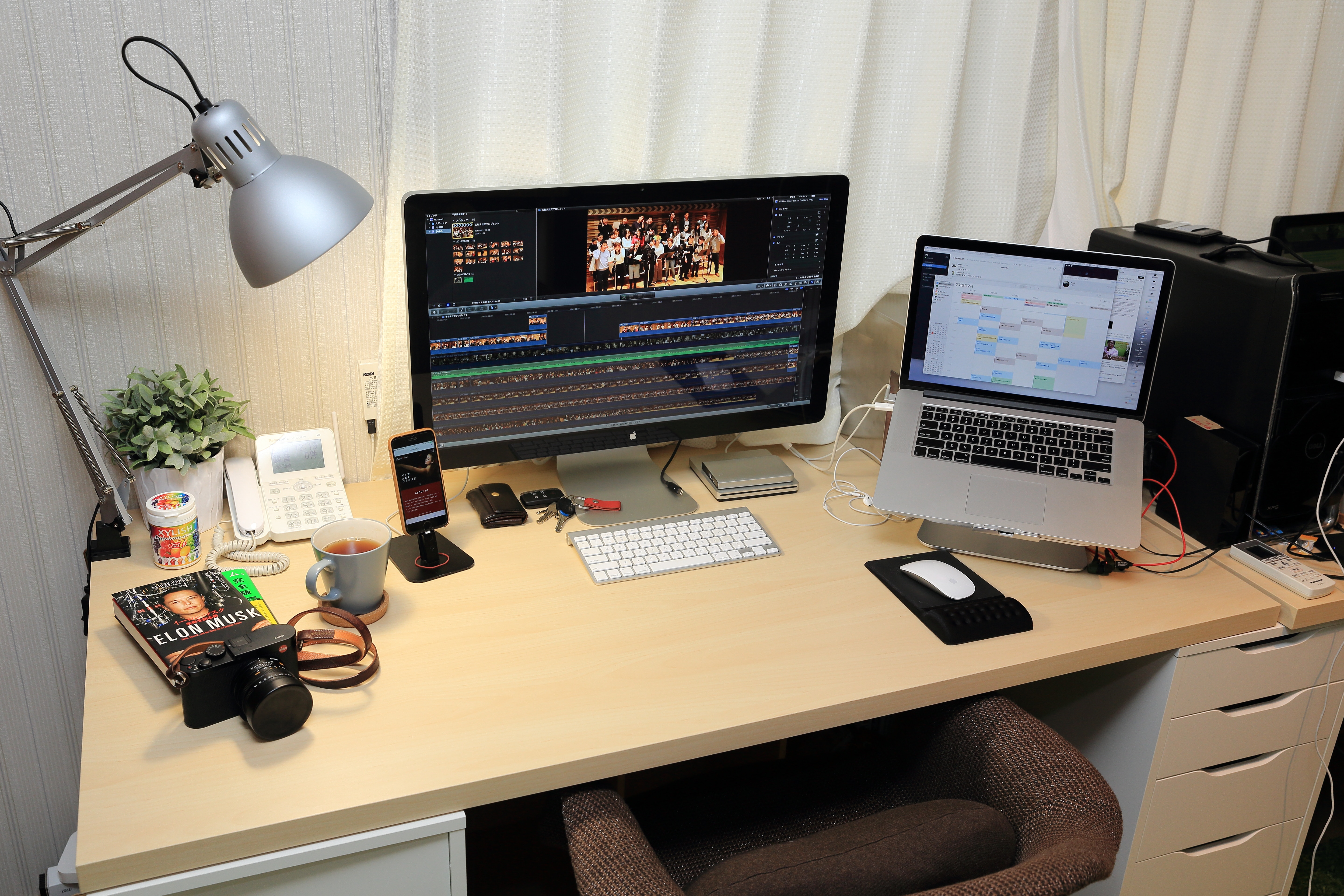When choosing a new computer, you are often faced with a dilemma: a desktop or a laptop? You can’t just answer this question with a simple “yes” or “no”. It all depends on your style of work or the overall time you spend in front of a screen. And there is a number of factors you need to take into account.

Portability
If you travel a lot on a regular basis, then choosing a laptop would be an obvious choice for you. The most modern models are usually very thin and quite lightweight, which makes it especially easy to carry them around. In this respect, stationary computers can’t even compare to laptops or notebooks! PCs users need to resort to other measures if they need to take their work with them, such as flash drives or cloud storage.
Work comfort and ergonomics
When comparing PCs with laptops, ergonomics is one of the key aspects you just have to take into account. Especially when the device will be primarily used for work. And with translation work, we’re taking really long hours. Bear in mind, that going for option that is not too comfortable can take a heavy toll on you in the long run.
It goes without saying that a stationary computer offers you more in terms of ergonomics. With PCs it’s much easier to position the screen correctly so that it doesn’t strain your eyes or neck. The same goes with adjusting keyboards to suit your preferences. Experts advise to place the keyboard in such a way to keep the elbows to your side. It should be positioned about 2 inches above your thighs, so that your arms are tilted downwards. With adjustable keyboard trays it’s not difficult to achieve. There are also many keyboard models to choose from to begin with.
Laptops are more of a one-size-fits-all option here, with much less variation. In most cases, the screen is too low and the keyboard is too high, which may cause neck or wrist pain.
Price and affordability
If you compare desktops with laptops of similar specs, PCs will usually turn out to be more affordable. PCs generally come with much more powerful processors than laptops. If you need to perform a few different power-intensive tasks at the same time, laptops may be considerably less effective and perform more poorly. With stationary computers it is also cheaper to upgrade certain components, like RAM memory or CPU. Laptop owners, on the other hand, often need to buy a new model, or they are forced to get stuck with a computer that is underperforming. This, in turn, may negatively influence your productivity.
Power issues
There can hardly be anything worse than losing all your translation work following a power outage! Laptops undoubtedly win in this category. Even in case of interruption of power supply, the battery backup allows you to save your work or even keep on working for a while. Desktop users, on the other hand, are much more vulnerable in when need to invest in external devices such as UPS (Uninterruptible Power Supply) to guard against such emergencies.
If you’re constantly on the move, working from home, your office, a train or a café, then a laptop will be a clear choice for you. However, a desktop computer always provides more comfort, and more options when it comes to accessorizing or upgrading. Before making a final decision you need to carefully consider your style of work and your individual preferences. Or – if you don’t have to care about your budget so much – buy both. Having both a desktop and a laptop at your disposal, you’ll be prepared for different circumstances. And you wouldn’t have to worry about losing access to your Déja Vu when alternating between PC and a laptop. You can easily move your license back and forth, depending on where you currently need it.










